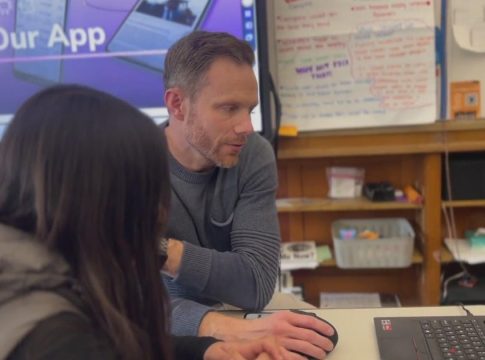Colorado’s New Personal Finance Requirement: A Game Changer for High School Graduates
In a significant step forward for financial literacy, Colorado has announced that starting in the 2024-2025 school year, all high school graduates will be required to take a personal finance course. This initiative aims to equip students with essential skills that will help them navigate the financial challenges of adulthood.
Why Personal Finance Matters
Many young adults enter the world armed with knowledge from academia but lack the practical skills necessary for managing finances effectively. The new requirement recognizes the importance of financial literacy in an increasingly complex financial landscape. By learning how to budget, save, invest, and manage debt early on, students will enter adulthood with a stronger grasp of their finances.
What Does a Personal Finance Class Cover?
A typical personal finance curriculum will likely cover a range of topics, including:
-
Budgeting: Understanding income and expenses to create a realistic budget. This is crucial for managing day-to-day finances and saving for future goals. A simple tip: track your expenses for a month to identify spending patterns.
-
Credit Management: Learning about credit scores, how they are calculated, and why they matter. A good credit score can lead to better loan rates, while poor credit can hinder opportunities.
-
Saving and Investing: Introducing the basics of saving money for emergencies and the importance of investing for long-term goals. For example, students will learn how compound interest works—money grows faster when you earn interest on interest!
- Debt Management: Discussing student loans, credit card debt, and strategies for paying them off efficiently. Understanding the difference between good debt (like student loans if they lead to higher earnings) and bad debt (like high-interest credit card debt) can transform financial futures.
Equipping Students for the Future
Making financial literacy a graduation requirement is a proactive measure that can significantly impact future generations. As most adults regret not learning about money management sooner, this curriculum is designed to fill those gaps and foster a generation of financially savvy individuals.
Moving Forward: Practical Steps for Students
While the curriculum is a fantastic start, students can begin enhancing their financial knowledge today. Here are a few simple actions to take:
-
Read Financial Blogs or Books: Websites like NerdWallet and similar resources provide valuable tips and insights.
-
Set Up a Budget: Use free online templates or apps to track your expenses and savings goals.
- Engage in Conversations about Money: Discuss financial topics with family and friends to gain different perspectives and insights.
In conclusion, Colorado’s mandate may be a watershed moment in financial education, empowering students not just to graduate but also to thrive in their financial journeys. With the right knowledge, today’s students can become tomorrow’s informed investors and savvy spenders, setting the stage for a financially stable future.

Writes about personal finance, side hustles, gadgets, and tech innovation.
Bio: Priya specializes in making complex financial and tech topics easy to digest, with experience in fintech and consumer reviews.

